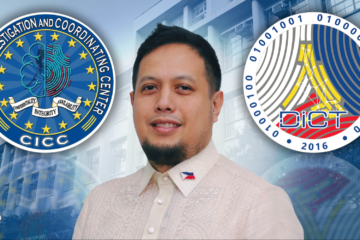THE UNITED States Agency for International Development (USAID) has informed its grantees, including UST, about three possible outcomes that may arise from the order of US President Donald Trump to freeze its funding, including the discontinuation of their projects, according to a University researcher.
Prof. Moises Norman Garcia, a researcher at the UST Research Center for Social Sciences and Education (RCSSED), said the three scenarios raised by the aid agency were the resumption of USAID-funded projects along with a deadline extension; the continuation of projects but with revised objectives to meet the agency’s realigned goals and initiatives; and the termination of the projects.
“Number one, continue the project with extension… Second, there could be continuity but with some revisions of the objectives. It has to be aligned with the United States government, whatever [it] wants—so there’s continuity, there’s revision. And the third thing, which we don’t want to happen, we hope it won’t happen, is the total discontinuation of projects,” Garcia told The Flame.
The conditions were relayed by the Gerry Roxas Foundation (GRF), one of the oldest donee institutions in the Philippines, in a meeting with USAID grantees last Feb. 11, Garcia said.
On Jan. 20, the US government issued a 90-day pause on its foreign development assistance, saying some of the project beneficiaries are not aligned with the country’s interests and values.
Under the directive, USAID’s new obligations and disbursements of assistance funds to foreign countries, including the Philippines, shall be paused until April 19, an order that critics said would disrupt humanitarian programs on education and vulnerable communities.
The Trump administration has justified the move, citing the need to scrap projects that do not substantially benefit Americans and to prevent the wastage of taxpayers’ money.
Earlier this month, White House Press Secretary Karoline Leavitt assailed USAID over what she called a “wasteful spending of American taxpayer dollars.” She added that the aid agency has been funding “insane priorities” like a transgender comic book, a transgender opera in Colombia and diversity, equity and inclusion projects.
The Trump administration is also reportedly planning to cut the number of USAID workers from 10,000 to just more than 600 employees.
The USAID has announced that all its direct hire personnel would be placed on administrative leave globally starting Feb. 7, except personnel responsible for mission-critical functions, core leadership and specially designated programs.
Limited operations
Garcia said all personnel working on the University’s USAID-funded projects were barred from onsite and implementation activities following a USAID Philippines stop-work order that suspended the activities of its grantees starting Jan. 24. The move stemmed from an order seeking to reevaluate and realign USAID that called for the halting of work in all existing foreign assistance awards, Garcia said.
According to him, the order has forced researchers and personnel to implement limited in-office operations and remove the agency from their affiliations.
“The research project is still ongoing. Perhaps, we’re not in the field for now… But, other than that, we’re giving staff members assignments because they’re getting paid. They’re receiving salaries. But, you also need to find output for that. But, that output is office work. It’s all just writing,” Garcia said.
Garcia is one of the project heads of the USAID-funded research, “Siquijor Island Conservation and Restoration: Toward a Regenerative Ecotourism Destination,” which looks into the sustainability and regeneration of the area in Visayas. The study, which is under the UST Research and Endowment Foundation Inc., was granted P16.5 million by USAID and the GRF in 2023.
According to Garcia, staff members will continue to receive their monthly and contractual salaries under the stop-work order, but no new commitment of project funds, disbursement or payments for new activities, travel and procurement will be allowed.
“The GRF will send a cash advance…So, they will send it and then UST will pay the salaries based on the daily time records filled out by the staff members. And we, on the other hand, each have our own contracts,” the researcher said.
He added that the University’s USAID-funded projects would also be permitted “allowable costs,” or reasonable expenses such as site security, personnel salaries, office space, communication and utilities. However, they were advised to observe prudence in project expenses since everything is uncertain because of the 90-day freeze order.
Garcia said while the GRF has made efforts to reach out to USAID, communication has been cut off since the agency issued the stop-work order.
“They (GRF) are trying to reach out. But, they’re not able to contact them now,” he said, adding that his research team is currently looking for alternative local and international funding sources.
While Trump may not prioritize sustainability initiatives and projects, Garcia remains optimistic about the continuation of their program as it has a ripple effect on the US’ travel and tourism industry.
“We’re expecting a positive outcome after the 90-day pause. To be positive… I think, although Trump is not an environmentalist, and he doesn’t believe in climate change, our project there is about tourism… Sustainable and regenerative tourism… If the tourism industry recovers, more tourists will come here. So, it will earn money, income. That’s what Trump wants,” he said.
Established by former president John F. Kennedy through the US Foreign Assistance Act in 1961, USAID is the principal agency aimed at extending international development and humanitarian assistance to “save lives, reduce poverty, strengthen democratic governance, and help people emerge from humanitarian crises and progress beyond assistance.”
In recent years, the agency’s projects in the Philippines have focused on economic development and governance, health, education and the environment. F




